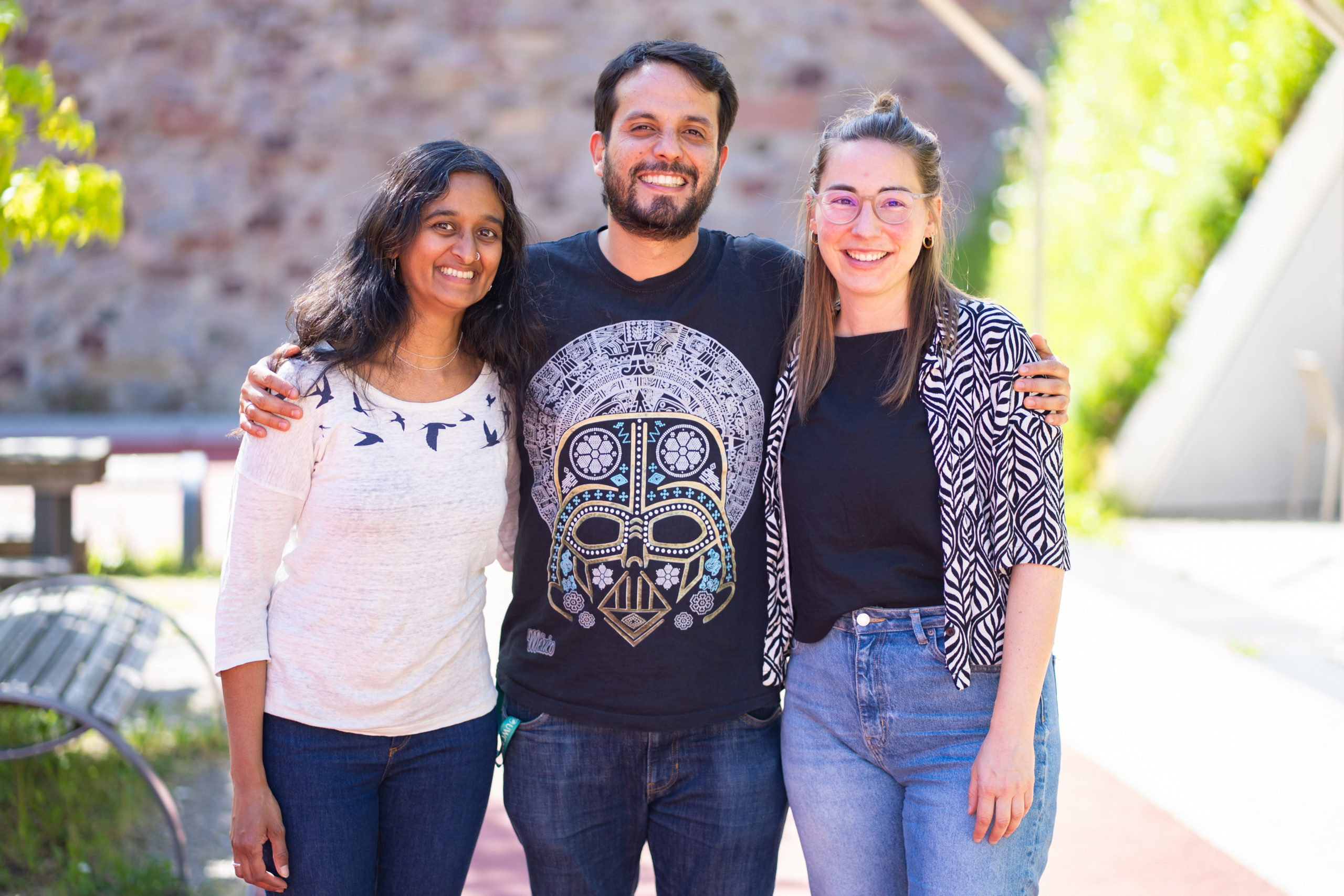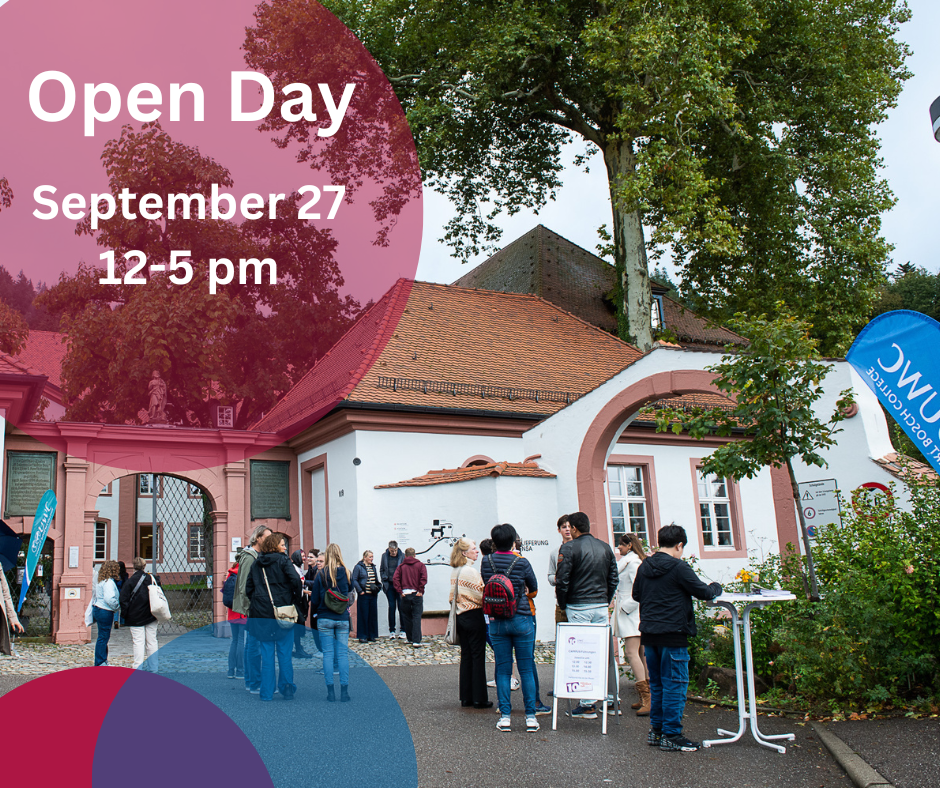Peacebuilding is community building

Peace and Peacebuilding are at the heart of RBC’s values and of UWC’s mission statement. But what does this mean in practice?
Founded by staff members in 2022, the school’s Anti-Racism Working Group (AR Group) is promoting a more structural approach to addressing issues of inequality, racism, and ultimately peacebuilding within our diverse community.
In 2024, under the leadership of Helen White, the College put in place a steering committee, with both student and staff members of the AR Group, that reports to our school’s management. We spoke with the three staff members of the steering committee: Social Pedagogue Emilio Toussaint and Teachers Natasha Tourabi and Anna-Maria Baer.
Could you give us an overview of how you have structured the AR Group’s work?
Natasha: The Anti-Racism Group started informally as a summer project during the Corona epidemic and at the time of the murder of George Floyd and the rise of the Black Lives Matter movement. It has evolved quite a bit since then. After looking at anti-racism issues prevalent in our context, we identified three areas of work: the subgroup ‘Education’ looks at how we can educate ourselves during our time at RBC; ‘Beyond the Bubble’ focuses on what happens outside of UWC – in host families, during off-campus activities in Freiburg or Project Weeks; while ‘Policies and Practices’ tries to bring about structural changes. Next term, we would like to integrate these subgroups’ work into the CAS program.
Some people might think that there would be no racist issues at a United World College. UWC after all brings together young people to take down prejudices.
Natasha: Yes, there has been the assumption that because we are a diverse community, these are not issues. Since working more formally as the AR Group, however, all of us have learned of some racist incidents. It’s been difficult to realize that even as a UWC, we are not an anti-racist community. We are still part of a wider society and have the same issues. But it’s the realization that we’re not perfect that counts. For me, it’s huge progress to see students and staff members coming forward so we can begin to have conversations. Management has been really supportive in the process.
Emilio: Many countries in the Global North and some in the Global South are unfortunately moving toward a more intolerant discourse about racial and sexual minorities. For me, the least we can do is to educate ourselves, to empower ourselves, to share this knowledge. I think that social media has a big influence on the students nowadays, and there’s a lot of hate speech not being addressed. It’s time to put it on the table.
Anna: And at the same time, it’s so difficult to have that conversation. It’s not like the person who does or says something racist is necessarily a bad person; they might be your friend or your colleague. Bringing this up as a racialized person must also be difficult. Hence, it’s important to provide the tools and the language to speak about it. I’ve learned so much in this process I didn’t know and didn’t have the words for.
Could you give examples of the work that you do at RBC?
Emilio: In the ‘Beyond the Bubble’ subgroup, we have conversations when incidents happen outside of the community, such as during external CAS activities, in host families, or at the school’s Open Day. We’re also in touch with other schools and learn about what they’re doing. The subgroup’s main project became this year’s Special Focus Day on Racial Inequality, which generated a lot of sensitivity around race. In addition to the AR Group’s work, which takes a political educational approach, we have also implemented a format called ‘Collective Care’, a safe space for racialized students and staff.
Natasha: We realized after so many conversations that we need both prevention and care work.
Anna: It’s important that there are spaces for racialized people only, where those attending can discuss topics that they do not want non-racialized people to hear.
Emilio: True. At the same time, I really like that the AR Group is mixed; there is no racial identity requirement. That’s useful in promoting interracial solidarity.
Anna: If we want to move forward as an institution, we all must contribute.
You work under the umbrella of peacebuilding at RBC and recently attended a Peacebuilding Workshop in Norway. How does this tie into your work as the AR Group?
Natasha: A big thing we’ve been working on in the ‘Policies and Practices’ subgroup is a proposal and job description for a Peacebuilding Coordinator at RBC. Our school is about peace as well as sustainability. We’ve hired someone to work on sustainability, so we should do the same for peace. Participating in the Peacebuilding training has helped us identify what we would like this person to do.
Anna: Creating a position to take peacebuilding forward would also relieve the AR members: we do this work on top of our regular jobs, and finding the time in a busy place like RBC is challenging. This sort of work is based on creativity, and it can only happen with space and time.
Emilio: We’re doing a lot for peace already at RBC: the mixed houses, the PT groups, Special Focus Days, the general idea of and intent behind living together with different backgrounds. However, I believe the community needs a figure who can tie things together and make them more purposeful. We hope we can get the funding to make this position possible!
Natasha: We put a lot of effort into building a good, strong student community, but we lack the same for our staff. Until we have this sense of community among the staff, we won’t be able to move forward in our peacebuilding process all together.
Emilio: For me, the main takeaway from the Workshop is that peacebuilding is community building. Based on our learnings and the principles of the Outward Bound program, we aim to offer a Peacebuilding Project Week. Students would go on a nature expedition with someone from an area their country is in conflict with. The only condition: they would be asked not to talk about the conflict. We want them to bond as people first, build trust, then start sharing their perspectives.
